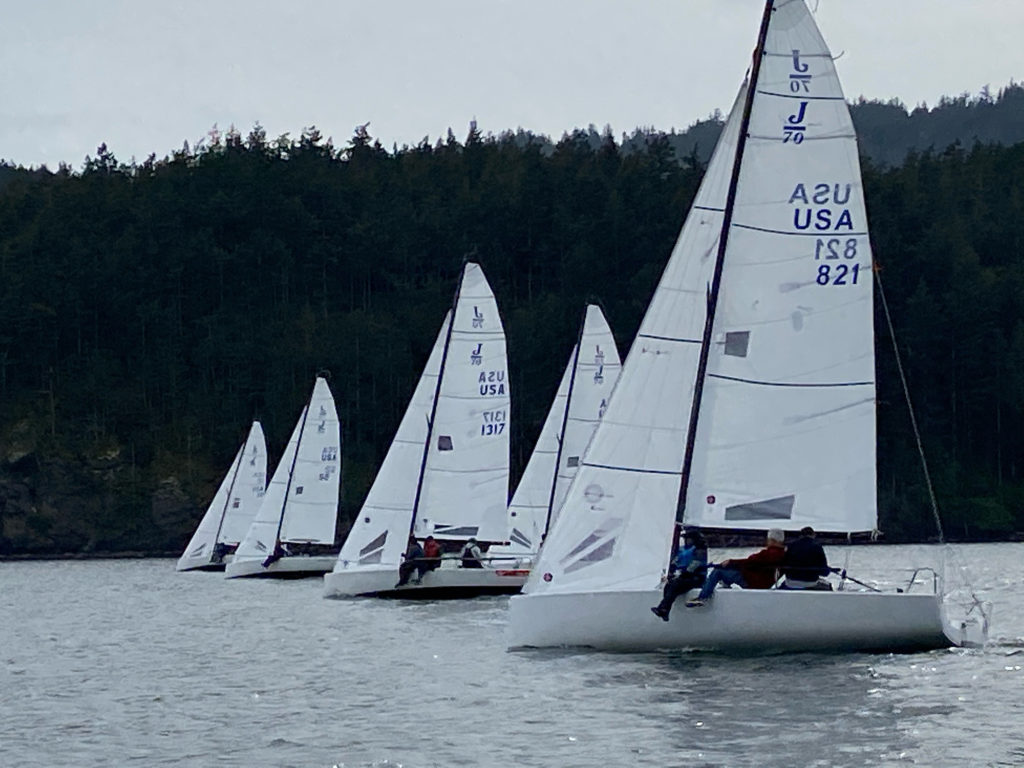
It was a little over a year ago that we found ourselves in a global situation without much in the way of a solution. No gatherings, no toilet paper, and a whole lot of uncertainty was all that we could count on; and for the sailing community that thrives and defines itself on adventure and exploration, it was a massive departure from the status quo. Within this new normal, one group in the far upper left of the map found themselves on an island they could not leave, surrounded by beautiful bodies of water, and a community of friends looking for something positive to focus on while keeping their distance.
Inspired by the world’s predicament, the group found sailing to be their salvation. One member of this group, Ron Rosenburg, had combined his career and passion and risen to the world’s elite ranks of sailboat race coaching. He is a regular face at nearly every world championship, heavily involved with several Olympic campaigns, and can be found in the debrief room of top professional teams all over the world. Most importantly, he has called Orcas Island home for over fifteen years. Together with a handful of other avid sailors, Ron put together a local program to support double handed sailing in the time of social distancing with the goals of simply getting out on the water and becoming better sailors. Starting off with a couple of second-hand J70 sport boats, a few sets of hand-me-down sails, and a couple moorings at West Sound marina, they began to sail.
Fast forward to today, and the aptly named “J-Pod” is an active shorthanded one design fleet that races every week with nine boats and half a dozen more on the horizon.
Interest is only growing as the fleet welcomes all comers and pushes everyone involved to become better. What sets this group apart is the core of what makes it special: They are out there for each other with a common goal of working together to learn. All the boats involved are practically identical, with everything from the same type of sail trim to mast tune shared among the fleet. Even the boats themselves are open to all comers, inviting new and seasoned sailors out on the water in the hopes they catch the bug of shorthanded fleet racing. One big caveat, supported by everyone involved, is that the boats do not touch each other. They never have, and if everyone cooperates, will never collide while on the water. It is simply not part of the program.
With the roots of the whole program centering around single household sailing, the fleet is keeping with tradition and encouraging boats to take to the water with limited crew. There is a method to this madness and Ron explains how the level of involvement by the crew in sailing these boats shorthanded is exponentially more engaging than being a small cog in a big machine of a traditional keel boats.
What is amazing about the entire process is how well it is working for all levels of sailors. In few places of the world would we find first-timers, high school sailors, regional contenders, and world champions set out on the same boats every week with a common goal. Every day begins with a setup and tuning session with the entire group sharing information over the radio and working to get all the boats as evenly matched as possible. This overwhelming focus on communication and inclusion forces even the most aggressive racer to check their ego at the dock and become part of the program, sharing what they know and learning from people who they may have otherwise not known.
At the end of the day, everyone gathers at the proverbial home base around the outdoor picnic tables at Orcas Island Yacht Club and conversation flows well into the evening. Whether they are a national champion or a true novice, everyone is out there to become better, and in doing so help everyone around them become better. Furthermore, this group is harkening back to the absolute heart of what makes sailing so special—spending time with like-minded people looking to enjoy themselves, something that there has been far too little of recently. Sailing is the winner in this fleet; and I, for one, am very excited to see what they are going to become and hope more groups take note.


